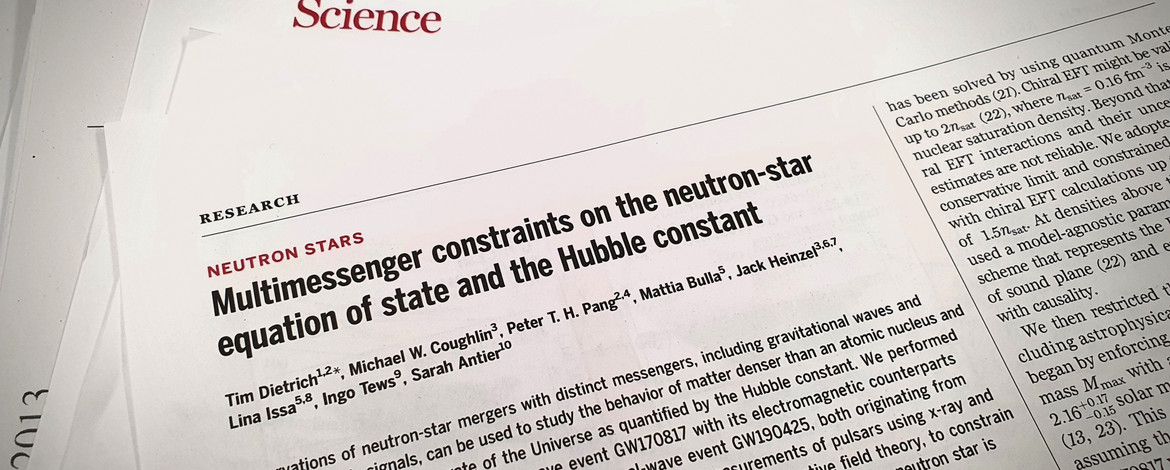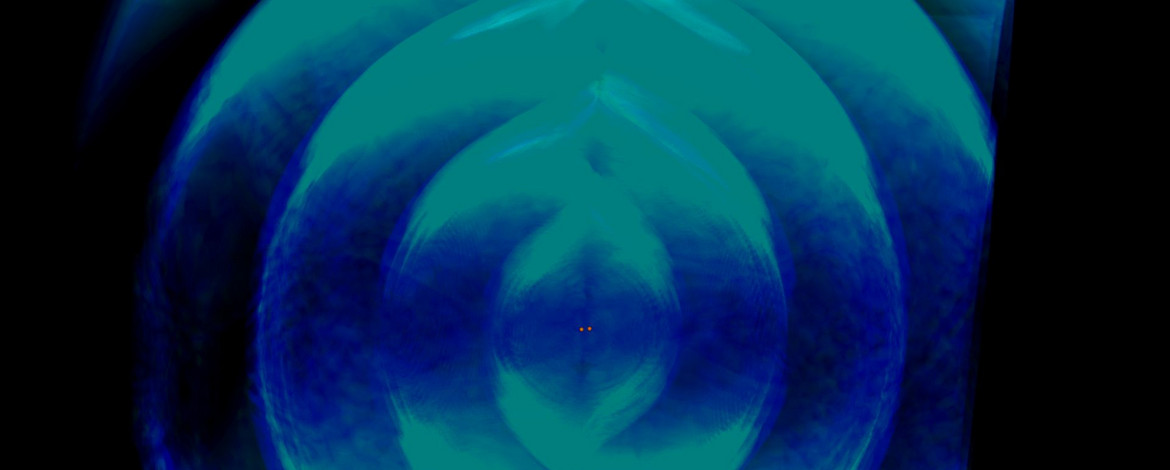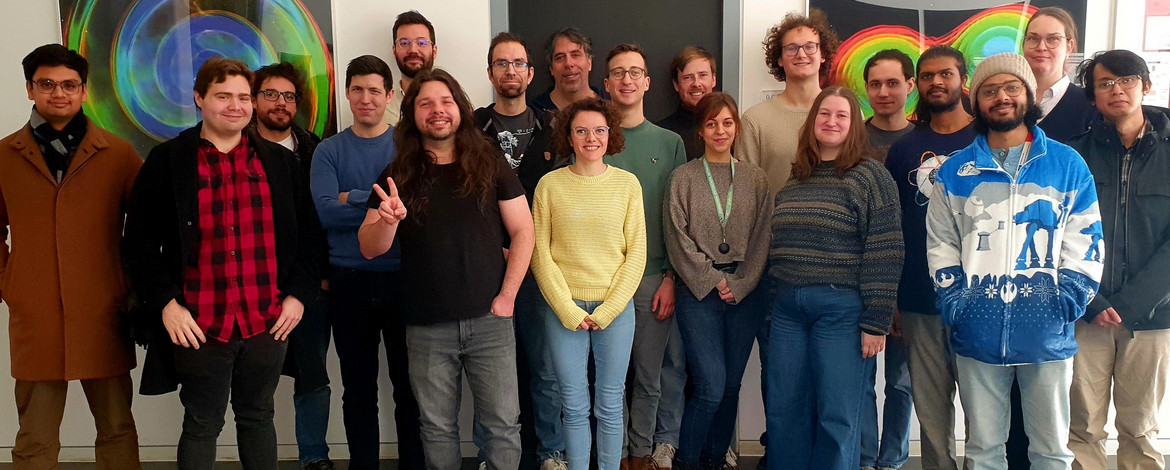Theoretical Astrophysics Group
In our group, we use high performance computing facilities to unravel the mysteries of the Universe. Due to the simulation of binary neutron star systems, we are able to constrain the behavior of matter at supranuclear densities and to estimate the expansion rate of the Universe. Our simulations are the fundament to develop new models to describe the gravitational wave signals released during the coalescence of compact binaries and to model electromagnetic signatures created during and after the collision of ultracompact neutron stars.
Our group works closely together with the Max Planck Institute for Gravitational Physics where Dietrich is leading an independent Max Planck Fellow group.





